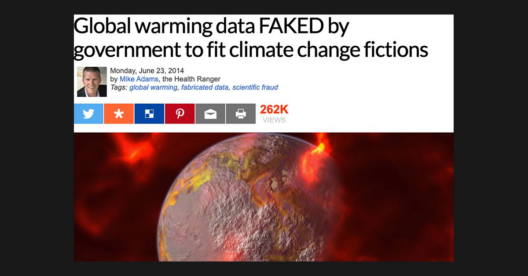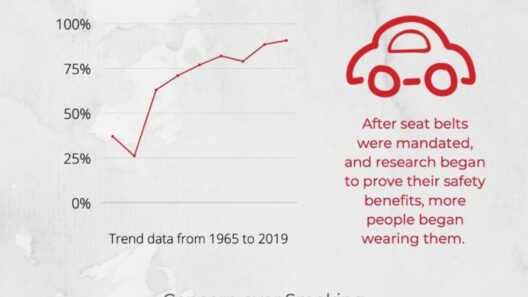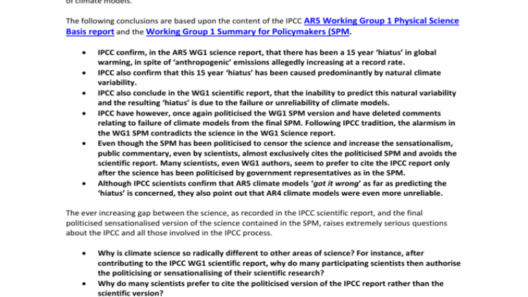The inquiry into whether ExxonMobil, one of the world’s largest fossil fuel companies, harbored an understanding of climate change as early as 1977 uncovers a complex narrative steeped in scientific foresight, corporate strategy, and ethical dilemmas. As the effects of climate change become increasingly undeniable, revisiting this historical juncture becomes not merely an academic exercise, but a fundamental investigation into corporate responsibility and the ethics of environmental stewardship.
In the late 1970s, scientific consensus on climate change was still nascent, but salient studies began to emerge linking fossil fuel combustion to rising atmospheric CO2 levels. Exxon’s internal documents reveal that the company’s scientists, equipped with advanced modeling capabilities, were engaged in robust climate research. Their findings were stark—indicating that continued fossil fuel use would lead to consequential global warming. This was not merely speculative; it was rooted in rigorous empirical analysis derived from atmospheric physics. Alarmingly, the results pointed to significant ecological disruption if CO2 concentrations persisted on an upward trajectory.
The internal discourse within Exxon clearly indicated an awareness of the potential ramifications of climate change. An internal presentation dated 1977 showcased that Exxon scientists projected a temperature rise of several degrees Celsius if current consumption patterns continued. Yet, despite this knowledge, Exxon took a dual approach: one that entailed investing in climate science while concurrently disseminating public relations messages that cast doubt on the emerging climate narrative. This juxtaposition raises profound ethical questions: How can a corporation wield such insight and simultaneously contribute to misinformation?
This strategic obfuscation did not occur in isolation. It was part of a broader trend among fossil fuel companies. Faced with the prospect of regulatory constraints and societal backlash, the economic imperatives of profit maximization often conflicted with the moral imperatives of climate action. Corporations like Exxon recognized that effectively addressing climate change threatened their lucrative business models. Hence, rather than embracing the scientific reality, they instead opted for public doubt—a tactic that would stall potential regulatory actions and protect their financial interests.
The interplay between industry interests and scientific stewardship invites scrutiny of the socio-political landscape of the period. The late 1970s marked the onset of environmental activism, catalyzed by heightened public awareness of pollution and the burgeoning energy crisis. These factors created a precarious arena in which corporations navigated increasing scrutiny. For Exxon, the idea that climate change could be mitigated through rigorous external policies and collaborative initiatives was seemingly at odds with the entrenched interests of their stakeholders. This tension fostered a culture of silence, wherein dissenting voices within the corporation were likely overruled by dominant narratives prioritizing shareholder value.
Moreover, the revelations about Exxon’s climate knowledge highlight the intricacies of corporate governance and accountability. Did shareholders receive comprehensive information about potential climate-related risks associated with their investments? Did the board of directors understand the long-term implications of their environmental policies? As climate science has progressed, so too has the dialogue surrounding fiduciary duties. The concept of “long-termism” is gaining traction, urging corporations to consider not just immediate gains but the sustainability of their business practices and their environmental impact.
The question of scientific integrity within corporate structures also emerges. If Exxon was privy to climate predictions from its scientists, did it fail in its duty to act as a responsible player in the energy sector? The company’s decision-making processes may reveal a profound disconnect between knowledge and action—a schism that persists in many industries today. With mounting pressure from environmental organizations and increasingly concerned consumers, the narrative surrounding corporations’ ethical obligations must evolve to foster more transparent and accountable practices.
As the consequences of climate inaction unfold—manifesting in catastrophic weather events, rising sea levels, and societal upheaval—historical reflection offers poignant lessons. The dichotomy of understanding climate science while stifling action not only impedes progress but also undermines public trust. Citizens and consumers are increasingly demanding authentic engagement from corporations—a paradigm where transparency supersedes profit margins. This shift compels organizations to recalibrate their strategies, seeking not just financial viability but a commitment to ecological ethics.
Considering the trajectory of climate action, it becomes imperative to evaluate the role of legacy corporations in the transition to a sustainable future. Historical insights suggest that the journey towards responsible energy consumption is fraught with challenges, yet it is also ripe with opportunities. The potential for transformative change exists, calling for a collective awakening within corporate America and beyond. If corporations like Exxon were aware of climate change decades ago, the present day prompts a hard reckoning: What steps can be taken now to rectify past inactions in favor of a more sustainable and equitable tomorrow?
The coming decades will require unprecedented collaboration across sectors to mitigate the impacts of climate change. As the world grapples with the consequences of historical decisions, the question lingers: How will we harness our understanding of past errors to catalyze present and future action? Only through commitment to transparency, ethical governance, and a sincere dedication to planetary health can companies reclaim the trust they have jeopardized. The legacy of knowledge that Exxon carried should not only inform historical discourse but inspire a bold new era for corporate engagement in climate action.








